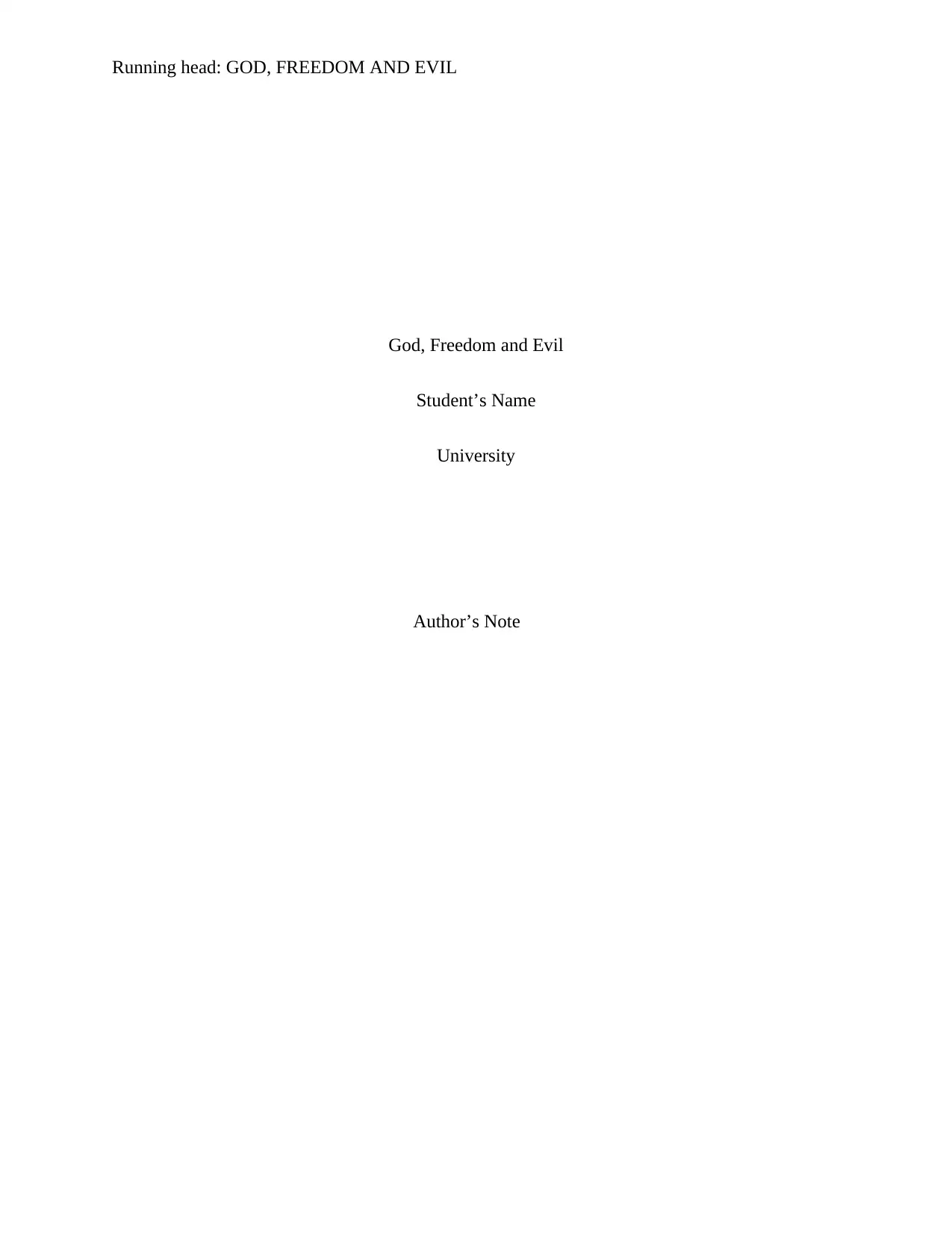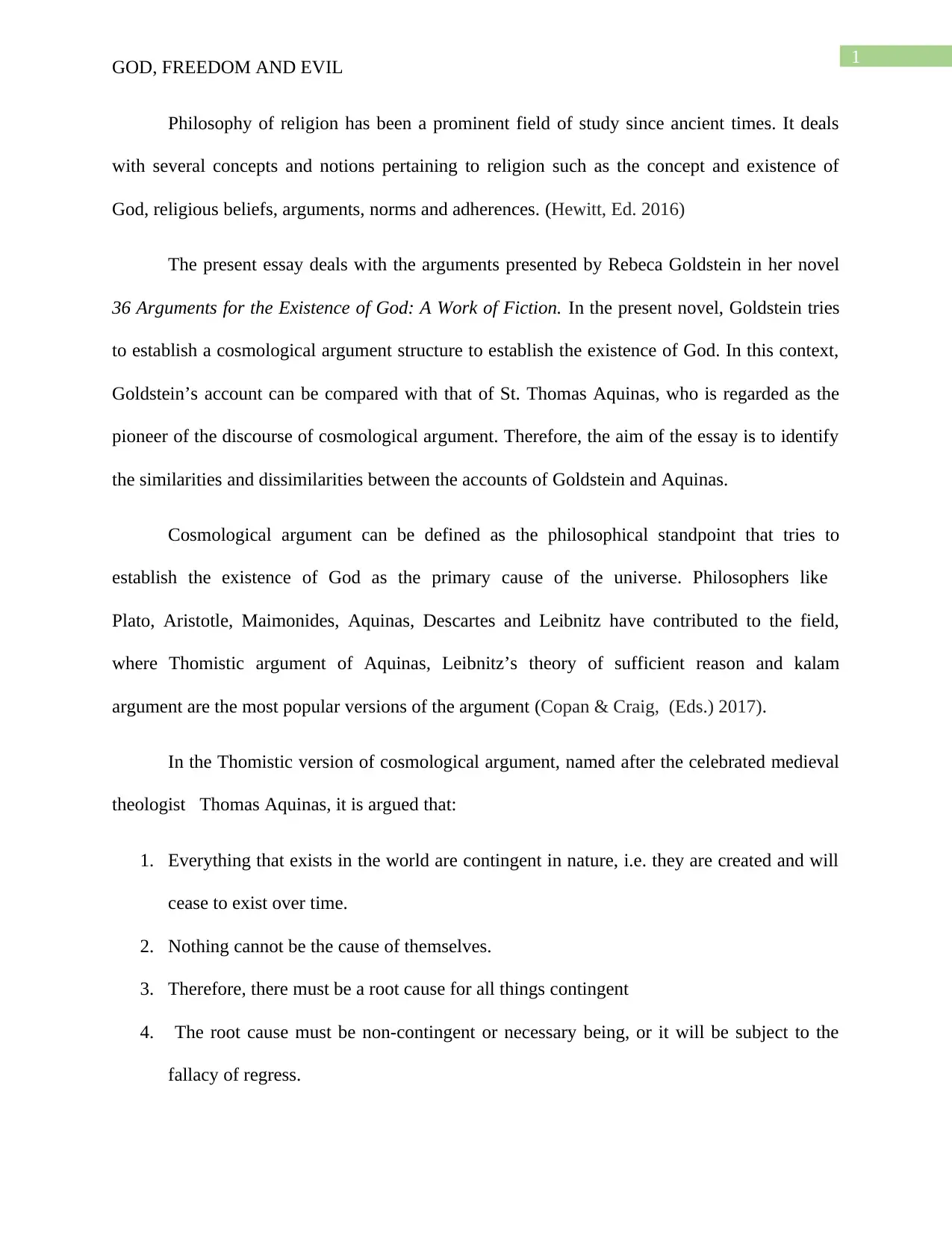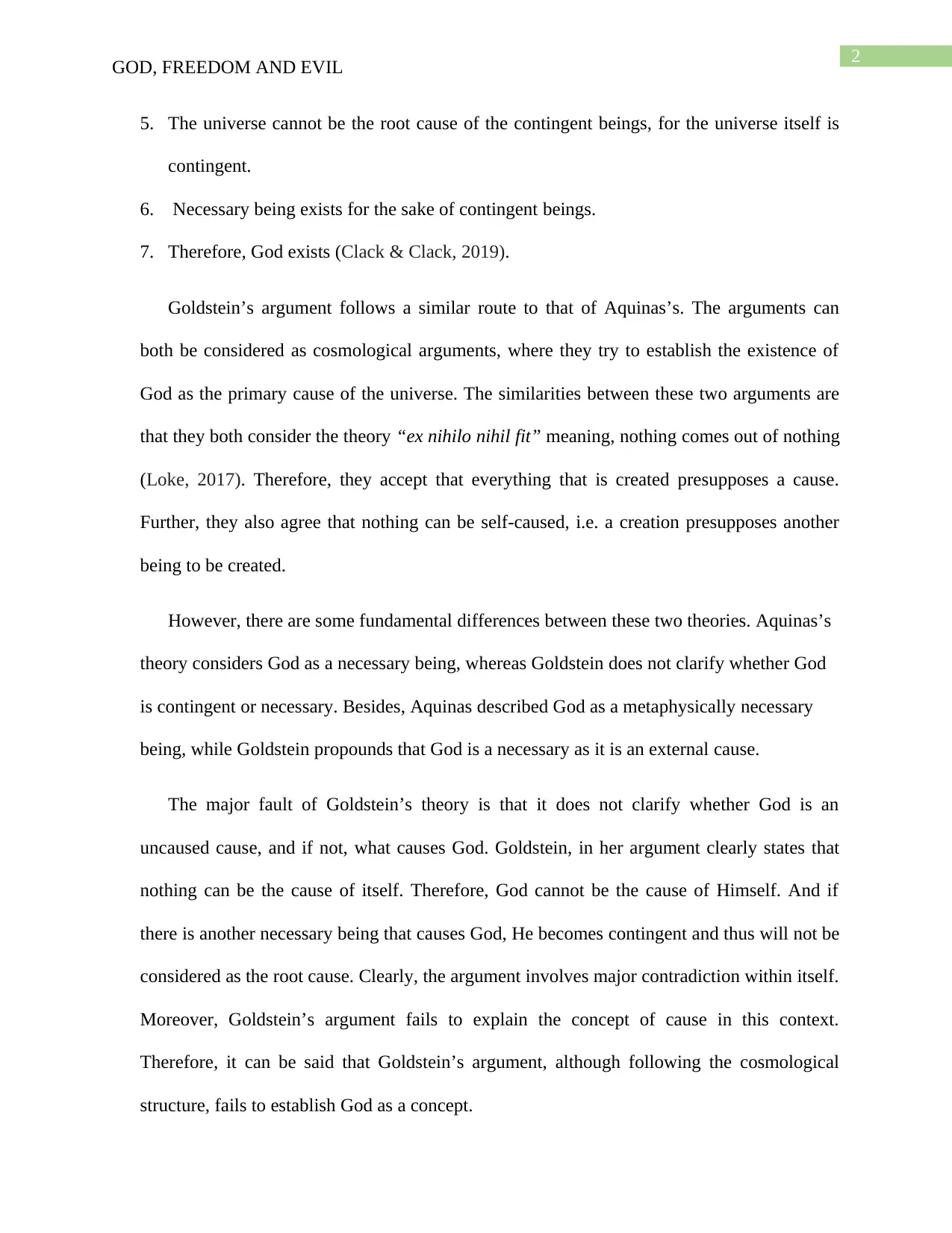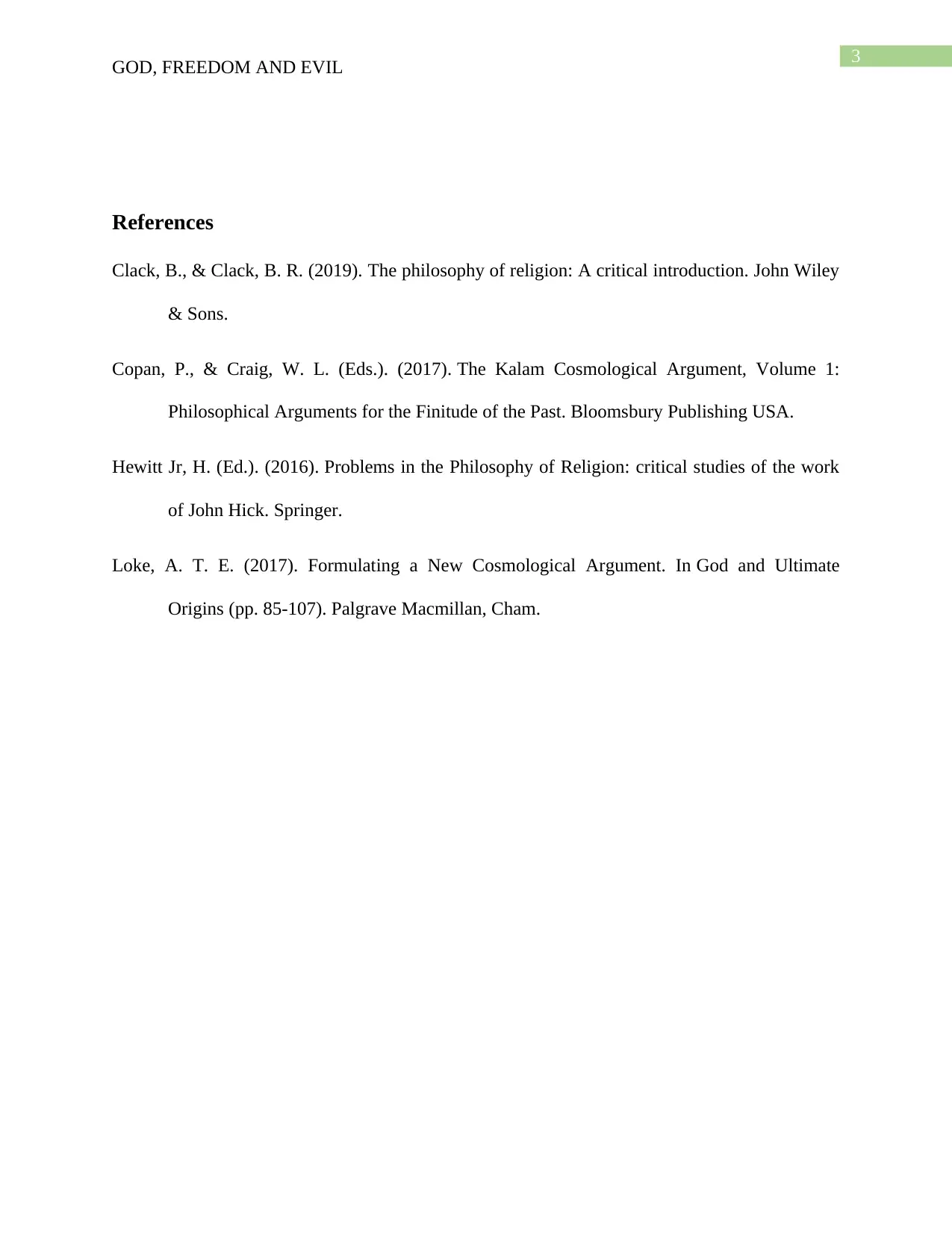University Essay: God, Freedom, and Evil: Philosophical Debate
VerifiedAdded on 2022/11/18
|4
|821
|197
Essay
AI Summary
This essay delves into the philosophical arguments surrounding God, freedom, and evil, focusing on Rebeca Goldstein's cosmological argument from her novel "36 Arguments for the Existence of God." The essay compares Goldstein's ideas with those of St. Thomas Aquinas, highlighting similarities and differences within the cosmological framework. Both Goldstein and Aquinas explore the concept of a primary cause for the universe, acknowledging the principle of "ex nihilo nihil fit." However, the essay points out key distinctions, such as Aquinas's view of God as a necessary being versus Goldstein's less defined stance, and the contradiction in Goldstein's argument regarding the uncaused cause. The essay concludes by critiquing Goldstein's argument, suggesting it fails to fully establish God as a concept due to internal inconsistencies and a lack of clarity on the nature of causation.
1 out of 4





![[object Object]](/_next/static/media/star-bottom.7253800d.svg)